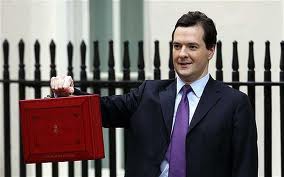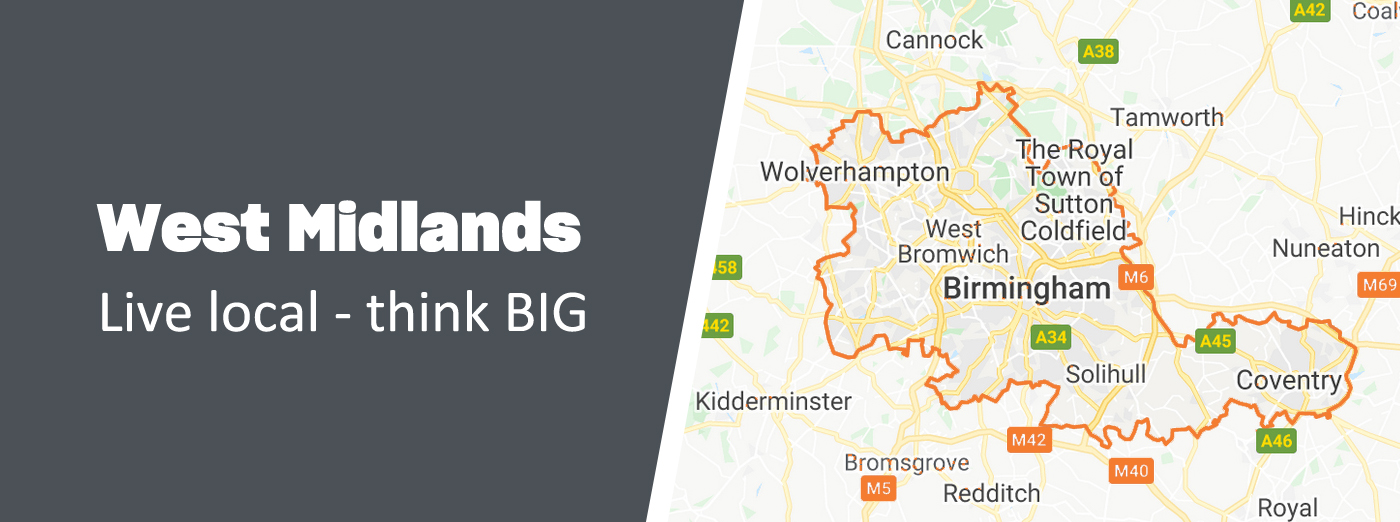Full article taken from www.gov.uk
The Spending Review and Autumn Statement has been set out to Parliament – here’s a summary of what was announced specifically for young people:
- Part-time students to get access to educational loans (maintenance and tuition fee loans)
- Large employers will have to pay an “apprenticeship levy” which will be set at 0.5% of their total pay bill from April 2017. Small companies will be exempt
- Sixth form colleges will be able to become academies and govern themselves autonomously from local authorities
- UK Sport is to receive a 29% increase in its budget
- Tax credit cuts have been abandoned
- National Citizen Service will be extended by 300,00 places
1. £4 trillion of spending has been allocated by the government over the next five years
The Spending Review sets out how £4 trillion of government money will be allocated over the next five years, so the government can invest in priorities like the NHS, defence and housing.
On average, departmental spending will fall at less than half the rate of the previous five years.
A full list of departmental spending settlements can be accessed at the bottom of this page.
2. A £10 billion surplus by 2019-20
Last year, the deficit was halved compared to its 2009 to 2010 level. Next year, it will be down by three quarters.
Over the next four years, the deficit will have been eliminated and the government will be running a surplus – raising more than is spent.
3.Tax credits
The government will borrow £8 billion less than forecast – making faster progress towards eliminating the deficit and paying down debt.
The improved public finances allow the government to reach the same goal of a surplus while cutting less in the early years, to smooth the path to the same destination. That means it can help on tax credits.
The government has had representations that these changes to tax credits should be phased in, and listened to the concerns, heard them and understood them.
And because the government has announced today an improvement in the public finances, the simplest thing to do is not to phase these changes in, but to avoid them altogether. Tax credits are being phased out anyway as the government introduces universal credit.
What that means is that the tax credit taper rate and thresholds remain unchanged. The income rise disregard will be £2,500.
The government will propose no further changes to the universal credit taper, or to the work allowances beyond those that passed through Parliament.
On the figures published today (Wednesday 25 November), the government will still achieve the £12 billion per year of welfare savings promised.
4. Introducing London Help to Buy and Help to Buy: Shared Ownership
A new Help to Buy equity loan scheme for London will give buyers 40% of the home value from early 2016, as opposed to 20%, as the current scheme offers.
The government is also announcing a series of other schemes, including Help to Buy: Shared Ownership to help people get on the housing ladder.
From 1 April 2016 people purchasing additional properties such as buy to let properties and second homes will pay an extra 3% in stamp duty. Money raised from tax on people buying their second home will be used to help those struggling to buy their first home.
Read more about the Help to Buy announcements made at the Spending Review and Autumn Statement.
5. Protecting the police budget
The government will protect overall police spending in line with inflation – an increase of £900 million by 2019-20.
Additional funding will be provided for forces who have strong proposals to support efficiency and reform. The National Crime Agency’s budget will also be protected in cash terms to help cut organised crime.
This funding will also allow forces to adapt to changing crime threats and train more firearms officers to make sure the country can be protected from terrorist threats.
£1 billion will also be spent on 4G communications for police forces and other emergency services, allowing officers to take mobile fingerprints and electronic witness statements. This will free up officers’ time, saving around £1 million a day when fully operational.
6. Local councils will get control over local taxes and provide extra support for social care
Councils will be given even more powers over decision making in their local areas. They will be able to add 2% on council tax to pay towards social care in their areas, if they wish.
From 2020 they will be able to keep money from business rates collected from shops and businesses, to spend on local services like street repairs, libraries and transport.
Local police and crime commissioners will also have the ability to raise local council taxes. Council tax is currently made up from money that goes to local services like police and fire services as well as local councils. From next April, police forces will be able to increase the amount they require from council tax collections by 2%.
7. Half a trillion pounds for the NHS
NHS England will receive £10 billion more a year in real terms by 2020 than in 2014-15. This will fund:
800,000 more operations and treatments
5.5 million more outpatient appointments
2 million more diagnostic tests
access to GP services in the evenings and at the weekend, and 7-day access to hospital services by 2020
By 2020, health and social care will be integrated across England, joining up services between social care providers and hospitals. This will mean that health and care will feel like a single service for patients.
Grants for health students will also be replaced by loans, and the cap on the number of nurses and midwives that can go into training each year will be removed, providing up to 10,000 more nurses and other healthcare professionals for the NHS. These students will be able to receive 25% more financial support during their studies as a result.
From 2020, people with suspected cancer will be diagnosed or given the all clear within 28 days of being referred by a GP, helping to save up to 11,000 lives a year.
Over £500 million will also be spent on new hospitals including in Cambridge, Brighton, and Sandwell.
8. The basic state pension will rise to £119.30 a week
From April 2016, the basic state pension will rise to £119.30 per week, an increase of £3.35. This will be the highest real terms increase to the state pension for 15 years.
9. Schools funding will be protected
Schools funding will be protected in line with inflation. £23 billion will be invested in school buildings, creating 600,000 extra school places and 500 free schools.
Maintenance loans will also be available to higher education students who study part time from 2018.
10. The UK will meet its NATO target of spending 2% of national income on defence
The Ministry of Defence’s budget will be increased by more than £5 billion by 2020-2021.
£1.9 billion will also be spent on cyber security over the next five years, including on a new centre to protect the UK against attacks. Counter terrorism spending will increase by 30%, including providing 1,900 new intelligence staff.
Read the National Security Strategy and Strategic Defence and Security Review 2015
11. The UK will continue to spend 0.7% of national income on aid
Aid funding will continue to be protected, including a new £1 billion global vaccine fund speed up the development of drugs to eliminate the world’s deadliest infectious diseases.
A new £500 million crisis reserve will also be set up so the UK can respond quickly and effectively to crises as they happen.
Read the new strategy ‘UK aid: tackling global challenges in the national interest’
12. Part time season tickets and money back if your train is late
New flexible season tickets will soon be available on certain lines across the country, including C2C between London and Essex, and the Great Northern Route on Thameslink. This means that commuters will be able to buy part time season tickets, if they wish.
Better mobile connectivity will also be provided through a pilot scheme on commuter lines in London, the Midlands and the North.
Commuters will also soon be able to claim compensation from their rail tickets if their train is more than 15 minutes late.
13. More money for Scotland, Wales and Northern Ireland
Scotland, Wales and Northern Ireland will all receive more money to be spent on infrastructure projects, with each government deciding where this will be spent.
This will be an increase of around 14% for Scotland, 16% for Wales and 12% for Northern Ireland.
14. Tampon tax: VAT from the sale of tampons will go towards women’s charities
Around £15 million in VAT is collected each year on sanitary products. While EU rules mean that the government cannot remove all VAT on sanitary products, an annual fund will instead be set up equivalent to the yearly value of this tax.
The fund will be donated to women’s charities over this parliament, or until the UK can remove the tax from sanitary products.
15. Making the cost of going greener cheaper for households
The current Energy Companies Obligation runs until March 2017. This will be replaced from April 2017 with a new cheaper energy supplier obligation to reduce carbon emissions which will run for five years. The changes will mean that on average 24 million households will save £30 a year on their energy bills from 2017.
The Warm Home Discount scheme will also be extended to 2020-2021. This currently gives certain low-income households a one-off reduction of £140 on their electricity bill. People can apply for the scheme online through their supplier.
16. Further detail set out on the Apprenticeship Levy
At Summer Budget it was announced that three million new apprenticeships will be created by 2020, funded by a levy on large employers.
The apprenticeship levy will come into effect in April 2017, at a rate of 0.5% of an employer’s pay bill. A £15,000 allowance for employers will mean that the levy will only be paid on employers’ pay bills over £3 million.
Less than 2% of UK employers will pay the levy.
17. 300,000 homes better protected from floods
300,000 homes will be better protected from flooding by 2021, with £2.3 billion for over 1,500 flood defence schemes across the country.
This includes improvements to sea defences at Rossall in Lancashire which will reduce the risk of flooding for 7,500 homes, and money to protect 3,000 residential properties and 500 businesses in Leeds city centre.
18. Millions of pounds of investment in transport, arts and science in the North
A £400 million Northern Powerhouse investment fund will be created to help small businesses to grow. £5 million will also go to Manchester museum to create a new South Asia gallery in partnership with the British Museum, and £150 million to help make oyster style ticketing a reality across the whole of the North.
The government will also support the Rugby League World Cup bid for the UK in 2021 so matches can be held across the North. £1 million will go towards the Hull City of Culture programme for 2017.
19. Museums and galleries will remain free
Funding for museums and galleries will be maintained so they remain free to the public. To build on the success of the London Olympics and Paralympics in 2012, funding to the UK’s top athletes will be increased by 29% to support Team GB at Rio 2016 and Tokyo 2020.
20. People will no longer be able to get cash compensation for minor whiplash claims
To make it harder for people to claim compensation for exaggerated or fraudulent whiplash claims, the government is ending the right to cash compensation.
More injuries will also be able to go to the small claims court as the upper limit for these claims will be increased from £1,000 to £5,000.
This means that annual insurance costs for drivers could fall by between £40 to £50 a year.






